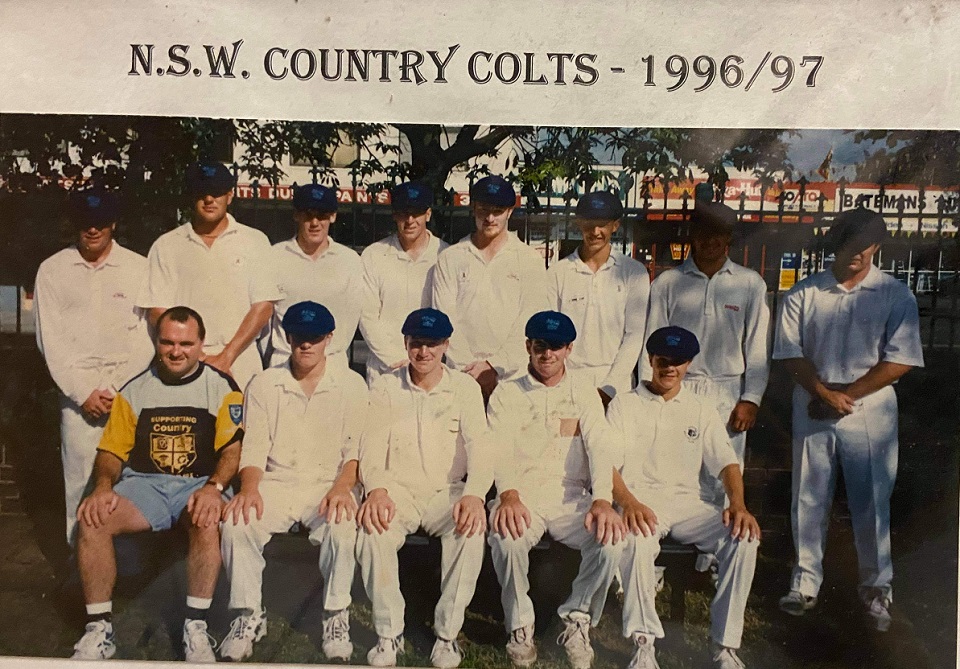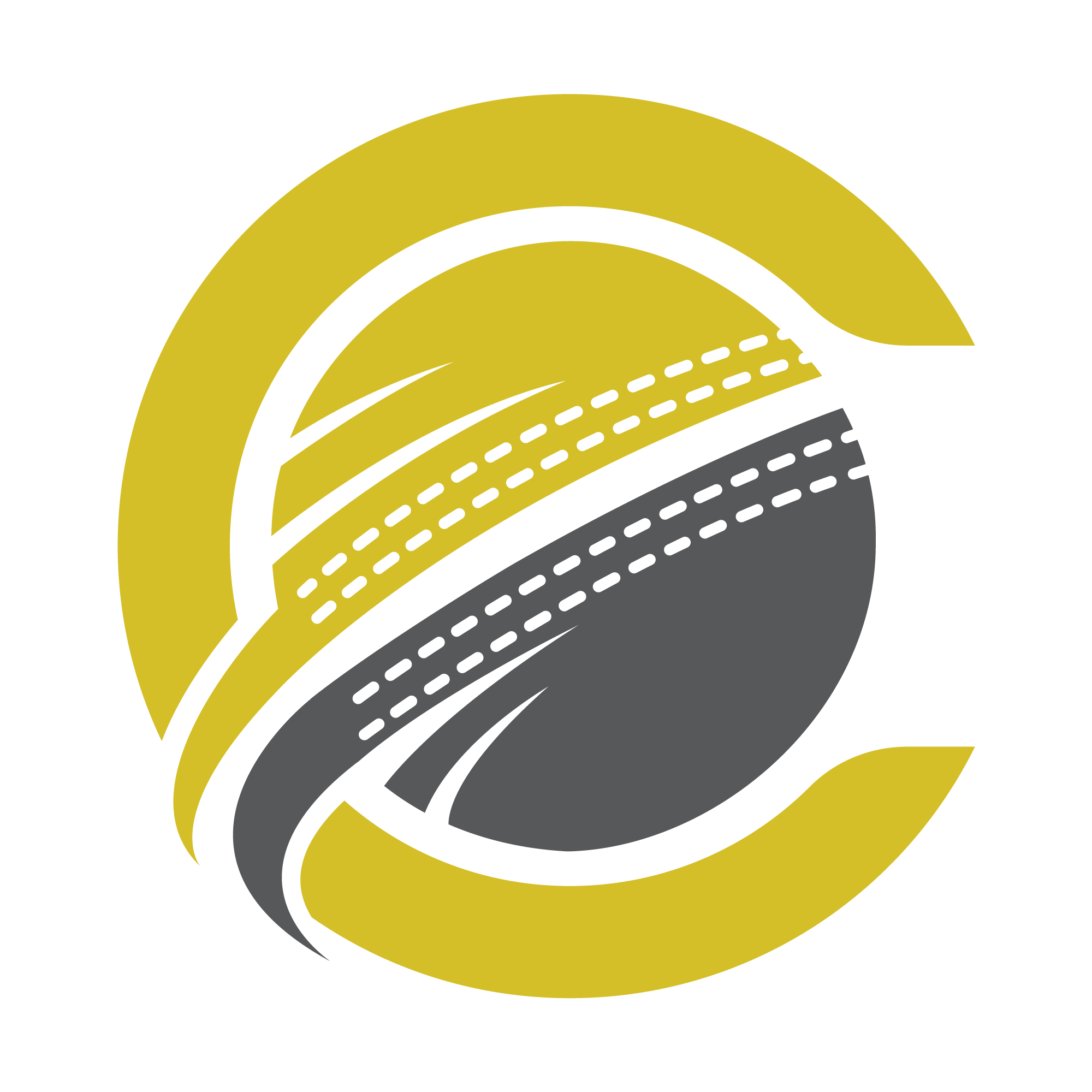About Me
Partner Sponsors
My Activity
answered
Q: Who is the fastest bowler you’ve ever faced in a game of cricket?
A: 1. Shoaib Akhtar on a belter at North Sydney, thank god is was flat. Bowled me the quickest ball I faced and didn't see it.
2. Brett Lee. Enough said.
3. Don Nash. First faced him when I was 14 and he was 16 with no lid and it was the first time I was hit on the inner thigh. Over the next 15 years I would have faced Nashy at least 20 times in games but a thousand balls in the nets. Only bowler I wore an arm guard to. I think I only got out to him once but the bowlers at the other end got a shot duck out easily. I can't recall scoring many runs in front of square and didn't pull or hook him once until mid-2005.
Relatively speaking in terms of my physical strength and equipment I used I would say he was the quickest I faced. Because of him I used a 2lb 4 oz bat. It wasn't until 2005 that I hooked him with confidence when his pace dropped.
He was the first cricketer I came up against when I knew I couldn't win a battle before the ball was bowled. Easily the most skilled bowler I came up against and a mystery why he didn't play 100 tests. Additionally, whilst playing with him I saw him destroy high quality batsmen that went on to achieve huge things. One game in particular NSW 19's v NSW Schoolboys at Hurstville Oval. We were 4-0 and I was at the non-strikers end for all of it. He yorked Thornley and his bat was still facing the sky. So many bowlers came through after Nashy in my playing time and not one of them that have been recorded at 150 felt anywhere near Nashy's pace.
Another story we were training at the new SCG indoor nets for NSWIS. We had the mental coach doing drills. Nashy and Binga had to write down and declare what they were going to bowl and execute. Nashy wrote FB Graeme Rummans. We asked what it meant, and he said effing badge. Sure, enough in the next few balls he did exactly that. Freakish talent.
2. Brett Lee. Enough said.
3. Don Nash. First faced him when I was 14 and he was 16 with no lid and it was the first time I was hit on the inner thigh. Over the next 15 years I would have faced Nashy at least 20 times in games but a thousand balls in the nets. Only bowler I wore an arm guard to. I think I only got out to him once but the bowlers at the other end got a shot duck out easily. I can't recall scoring many runs in front of square and didn't pull or hook him once until mid-2005.
Relatively speaking in terms of my physical strength and equipment I used I would say he was the quickest I faced. Because of him I used a 2lb 4 oz bat. It wasn't until 2005 that I hooked him with confidence when his pace dropped.
He was the first cricketer I came up against when I knew I couldn't win a battle before the ball was bowled. Easily the most skilled bowler I came up against and a mystery why he didn't play 100 tests. Additionally, whilst playing with him I saw him destroy high quality batsmen that went on to achieve huge things. One game in particular NSW 19's v NSW Schoolboys at Hurstville Oval. We were 4-0 and I was at the non-strikers end for all of it. He yorked Thornley and his bat was still facing the sky. So many bowlers came through after Nashy in my playing time and not one of them that have been recorded at 150 felt anywhere near Nashy's pace.
Another story we were training at the new SCG indoor nets for NSWIS. We had the mental coach doing drills. Nashy and Binga had to write down and declare what they were going to bowl and execute. Nashy wrote FB Graeme Rummans. We asked what it meant, and he said effing badge. Sure, enough in the next few balls he did exactly that. Freakish talent.
answered
Q: I’d like to get some advice on any good catching drills to practice by myself
A: Get a rebound net and also get a ball that has a lot of rebound such as a rubber ball and find a brick wall. Additionally just a tennis racquet and tennis balls and hit yourself high catches. Practice the technique of simplicity. I had a training session with M Taylor at the SCG for colts and he said when catching always nod your head and look to read the logo or to see the cross seam etc to overexaggerate watching it all the way into your hands. I had a chat with M Waugh at a presentation night and he said to make your hands feel like jelly so there is no tension in your hands so your hands will naturally grasp the ball when taking it rather than being hard and tense before the ball gets there. Keep it simple by trying to be 100% focused on the task at hand. You can practice this by giving yourself a certain amount of catches to take and add them up whilst focusing on taking the catch in between . You will know that you have got it wrong if you are thinking of the number whilst catching the ball.
answered
Q: A few years ago, I was fortunate enough to have an exchange with Greg Chappell about cricket. Greg suggested that the next frontier in performance would be in mental skills. I've been reflecting on that exchange recently. Through the prism of my two favourite sports, golf and cricket, the article below discusses the value of accepting imperfection while pursuing mastery. As usual, I encourage you to share your thoughts.
Like Golf, Cricket is definitely not a game of Perfect.
Dr Bob Rotella’s book, Golf is not a game of Perfect, contains numerous gold nuggets of wisdom for anyone serious about improving their sporting performance.
Like Golf, Cricket is definitely not a game of Perfect.
Dr Bob Rotella’s book, Golf is not a game of Perfect, contains numerous gold nuggets of wisdom for anyone serious about improving their sporting performance.
https://www.cricconnect.com/profile/946/peter-procopis/blog/2194/like-golf-cricket-is-definitely-not-a-game-of-perfect
A: The subconscious mind is the most important part in an athletes sporting performance and is grossly neglected and misunderstood. The elite of all athletes have mastered it but a majority of those don't know why or how they did. As a self sabotage coach that specialises in sub conscious reprogramming it is important to remember that there is only three ways to change the subconscious mind..extreme trauma eg an event, repetition and self/external hypnosis. In cricket terms most players (especially batsmen) develop negative, repetitive patterns of behaviour by being taught these by poor coaching and mentoring from people that don't understand the subconscious mind. Modern coaches focus and are trained to focus on the conscious mind (technique). As this article referred to Bob Rotella who is an expert in sporting psychology the most important thing an athlete can focus on is developing and training their sub conscious mind. It is a record/playback system so under pressure players need to practice the art of accessing the subconscious mind (the zone) by simple techniques such as breathing and focusing on the smallest target possible as that is what the sub conscious brain orientates to. The trick is to have the subconscious mind trained well so so when an athlete accesses this under pressure he has positive repetitive patterns of behaviour to call on. Much like NEO in the Matrix when he is programmed with Kung Fu. Hindsight is a wonderful thing, I would completely retrain my thinking processes of when I played. I got back into golf at 40 and using Rotella's techniques and my own studies of the sub conscious mind and self hypnosis I got myself playing golf off plus 2 with zero technical coaching whatsoever. Anyone can do it.
question
Q: Skid only played a few more games before he retired and it was a huge regret that I didn't come to Sydney earlier to get more time playing as Skid as captain. He was always there for me and it was the chats with him that convinced me to go to Manly in 2005 to play under his brother-in-law, Shawn Bradstreet.
Skid was the only person whom I saw Scott Hookey couldn’t intimidate. Hook had absolute respect for Skid and Hook was very intense. Hook's sister said to me one day at work that Scott feels he owes his life to Skid. I worked with both of them, and the respect Hook had for Skid tells a big story about the man that Skid is.
In 2005 I left the Bears to go to Manly and play under the best captain I experienced, Shawn Bradstreet.
Skid was the only person whom I saw Scott Hookey couldn’t intimidate. Hook had absolute respect for Skid and Hook was very intense. Hook's sister said to me one day at work that Scott feels he owes his life to Skid. I worked with both of them, and the respect Hook had for Skid tells a big story about the man that Skid is.
In 2005 I left the Bears to go to Manly and play under the best captain I experienced, Shawn Bradstreet.
https://www.cricconnect.com/profile/1001/darren-wotherspoon/blog/1842/darren-wotherspoon-my-best-captain
blog post
First of all, I'd like to say that I captained at all the levels I played except NSW 2nd XI from the age of 10 and by the time I started playing Sydney Grade Cricket in 2000 when I was 20 I’d pro ...
answered
Q: My son is 14 and wants to be a young fast bowler. He seems to bowl quicker than most his age but has difficulty with his run up.
I don’t know much about cricket, but he accelerates quickly at the start of his run up, and I think he starts to lose momentum as he gets into his bowling action.
Can I ask for some advice on how long his run up should be and where in his run up should he be accelerating?
I don’t know much about cricket, but he accelerates quickly at the start of his run up, and I think he starts to lose momentum as he gets into his bowling action.
Can I ask for some advice on how long his run up should be and where in his run up should he be accelerating?
A: Hi Will
Follow Dennis Lillee's advice. Get your son to have a marker to start. Get him to Imagine he is a manual car going through the gears, starting in first and building up through the gears, leaping at 4th gear and delivering in fifth gear. Practice whilst doing it with eyes closed so he gets an instinctive feel and you mark where he lands. Once a pattern of consistency has been developed that is the base line to work from. I personally don't think anyone should have too long a run up. If you have a 15 metre run up compared to a 30 metre run up that is 100 metres less sprinting per over and 2km over a 20 over spell. Also, do himself a favour and make sure his foot is halfway behind the line. Never having to worry about that means he will always be in the sub conscious mind rather than the conscious mind at execution.
Follow Dennis Lillee's advice. Get your son to have a marker to start. Get him to Imagine he is a manual car going through the gears, starting in first and building up through the gears, leaping at 4th gear and delivering in fifth gear. Practice whilst doing it with eyes closed so he gets an instinctive feel and you mark where he lands. Once a pattern of consistency has been developed that is the base line to work from. I personally don't think anyone should have too long a run up. If you have a 15 metre run up compared to a 30 metre run up that is 100 metres less sprinting per over and 2km over a 20 over spell. Also, do himself a favour and make sure his foot is halfway behind the line. Never having to worry about that means he will always be in the sub conscious mind rather than the conscious mind at execution.
answered
Q: Looking for some advice.
In one day cricket predominantly and against the spinners I’ve been having trouble beating the box fielder at mid wicket. I’ve not been timing being the ball well enough to get passed them or when I use my feet I’m struggling to get to the pitch of the ball and can’t generate any power in the shot.
Any tips on how to improve the shit because I see the good players do it so well and limit the number of dot balls.
In one day cricket predominantly and against the spinners I’ve been having trouble beating the box fielder at mid wicket. I’ve not been timing being the ball well enough to get passed them or when I use my feet I’m struggling to get to the pitch of the ball and can’t generate any power in the shot.
Any tips on how to improve the shit because I see the good players do it so well and limit the number of dot balls.
A: My old coach Warren Smith used to get me doing 4-500 balls of footwork drills to spin in a session. 1 step and 2 step drills, lots of skipping and running between the wickets. His philosophy was that batting was like boxing, be light on feet like a dancer/boxer and batting is a side on game. Focus on feet getting next to the ball. Focus on what you want to see not what you don't want to see. Give your attention to the gaps not the fielder. Keep it simple. The 2 step to a spinner and finding the gap either side of the box fielder should be the easiest, low risk percentage shot in a batsmen's arsenal against spin.
question
Q: NSW Country Colts cricket team 1996-97
Back Row – Mark McInnes, Heath Naughton, Colin Smart, Leon Thompson, Peter Francis, Michael Fraser, David Richards, Michael Eccleston
Front Row – Colin Wood (Manager), Darren Wotherspoon, Brad Haddin (Captain), Simon Moore, David Schweitzer
Back Row – Mark McInnes, Heath Naughton, Colin Smart, Leon Thompson, Peter Francis, Michael Fraser, David Richards, Michael Eccleston
Front Row – Colin Wood (Manager), Darren Wotherspoon, Brad Haddin (Captain), Simon Moore, David Schweitzer
blog post
Back Row – Mark McInnes, Heath Naughton, Colin Smart, Leon Thompson, Peter Francis, Michael Fraser, David Richards, Michael EcclestonFront Row – Colin Wood (Manager), Darren Wotherspoon, ...
question
Q: NSW Under 17 Cricket team 1995-96
Back Row – Grant Lee, Damien Alderton, Clinton Witt, Tim Johnson, Phil Jaques, Kym Beazleigh, Michael Bower, Sean McKiernan
Front Row – Allen Turrell (Coach), Brett Chippendale, Stephen Coombes, Daniel Godkin (Captain), Darren Wotherspoon, Luke Piper, Rocky Harris (Manager)
Back Row – Grant Lee, Damien Alderton, Clinton Witt, Tim Johnson, Phil Jaques, Kym Beazleigh, Michael Bower, Sean McKiernan
Front Row – Allen Turrell (Coach), Brett Chippendale, Stephen Coombes, Daniel Godkin (Captain), Darren Wotherspoon, Luke Piper, Rocky Harris (Manager)
question
Q: NSW Schoolboys team 1995 v Queensland Schoolboys in Sydney
Back Row – Mark McGinnity (Manager), Anthony Clark, Ryan Cross, Steve Jenson, Shaun Lendrum, Daniel McLauchlan, Michael Falk (Coach)
Front Row – Ben Hunt, Paul Johnston, Vaughan Williams (Vice Captain), Troy Stanley (captain), Adair Durie, Darren Wotherspoon, Ben Schultz
Back Row – Mark McGinnity (Manager), Anthony Clark, Ryan Cross, Steve Jenson, Shaun Lendrum, Daniel McLauchlan, Michael Falk (Coach)
Front Row – Ben Hunt, Paul Johnston, Vaughan Williams (Vice Captain), Troy Stanley (captain), Adair Durie, Darren Wotherspoon, Ben Schultz
question
Q: NSW Under 19 Cricket team 1996-97
Back Row – David Moore (Manager), Brett Van Deinsen, Michael Goldsmith, Greg Mail, Dominic Thornley, Don Nash, Phil Jaques, Trevor Bayliss (Coach)
Front Row – Daniel McLauchlan, Darren Wotherspoon, Dean Burke, Paul Sutherland (captain), Sean McKiernan, Mark Grace, Vaughan Williams
Back Row – David Moore (Manager), Brett Van Deinsen, Michael Goldsmith, Greg Mail, Dominic Thornley, Don Nash, Phil Jaques, Trevor Bayliss (Coach)
Front Row – Daniel McLauchlan, Darren Wotherspoon, Dean Burke, Paul Sutherland (captain), Sean McKiernan, Mark Grace, Vaughan Williams











